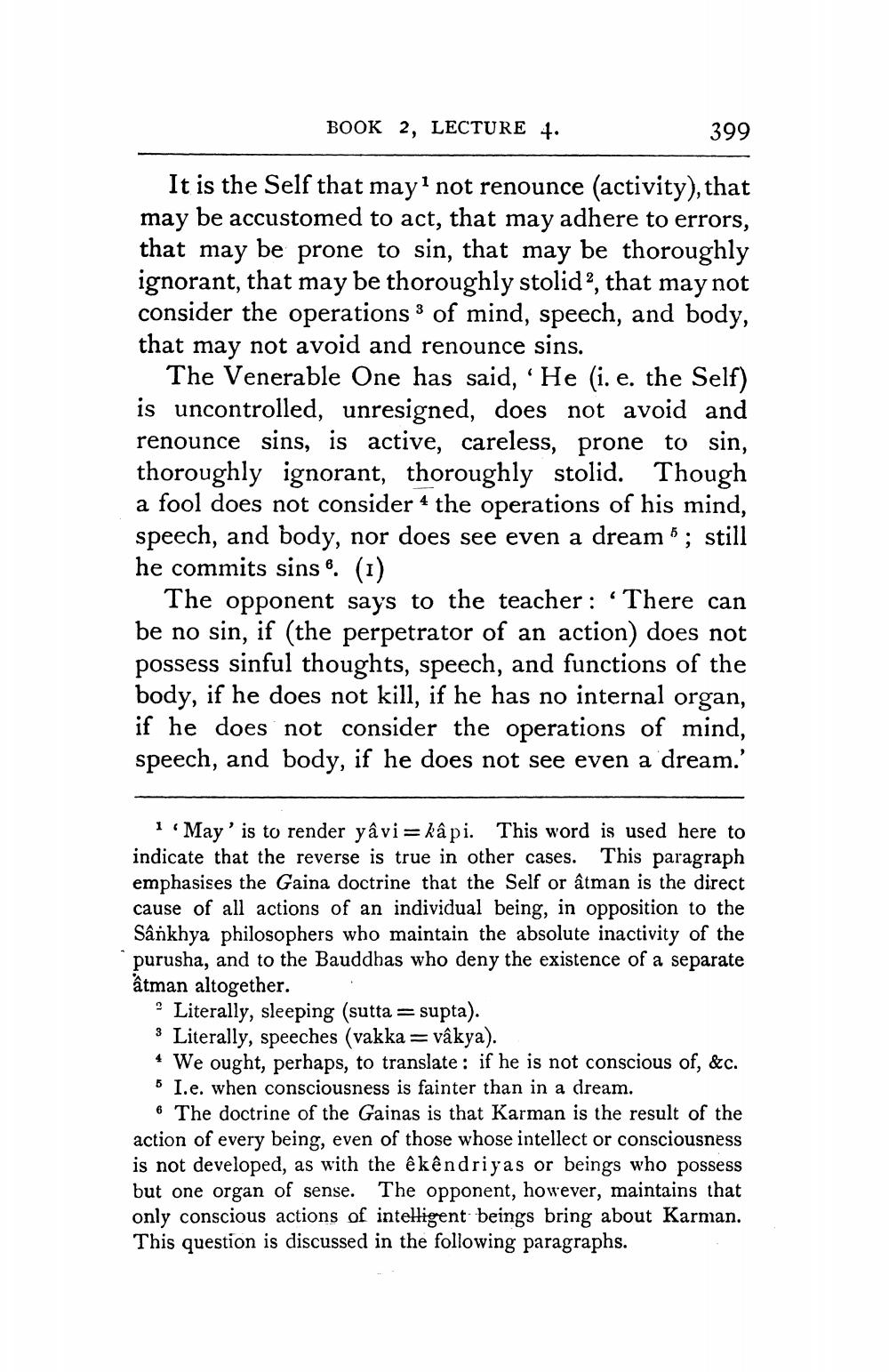________________
BOOK 2, LECTURE 4.
399
It is the Self that may not renounce (activity), that may be accustomed to act, that may adhere to errors, that may be prone to sin, that may be thoroughly ignorant, that may be thoroughly stolid”, that may not consider the operations 3 of mind, speech, and body, that may not avoid and renounce sins.
The Venerable One has said, 'He (i. e. the Self) is uncontrolled, unresigned, does not avoid and renounce sins, is active, careless, prone to sin, thoroughly ignorant, thoroughly stolid. Though a fool does not consider 4 the operations of his mind, speech, and body, nor does see even a dream 5; still he commits sins 6. (1)
The opponent says to the teacher : ‘There can be no sin, if (the perpetrator of an action) does not possess sinful thoughts, speech, and functions of the body, if he does not kill, if he has no internal organ, if he does not consider the operations of mind, speech, and body, if he does not see even a dream.'
1 May' is to render yâvi= kapi. This word is used here to indicate that the reverse is true in other cases. This paragraph emphasises the Gaina doctrine that the Self or âtman is the direct cause of all actions of an individual being, in opposition to the Sankhya philosophers who maintain the absolute inactivity of the purusha, and to the Bauddhas who deny the existence of a separate âtman altogether.
· Literally, sleeping (sutta = supta). 3 Literally, speeches (vakka=vâkya). 4 We ought, perhaps, to translate: if he is not conscious of, &c. 5 I.e. when consciousness is fainter than in a dream.
6 The doctrine of the Gainas is that Karman is the result of the action of every being, even of those whose intellect or consciousness is not developed, as with the êkêndriyas or beings who possess but one organ of sense. The opponent, however, maintains that only conscious actions of intelligent beings bring about Karman. This question is discussed in the following paragraphs.




